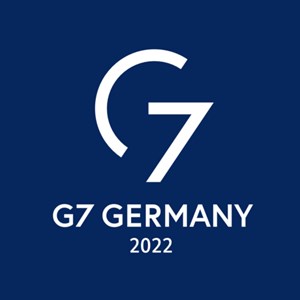NEWS

On 13 September 2022, CEN and CENELEC officially became signatories of the Equality Platform for the Energy sector. Through this endorsement, CEN and CENELEC pledge to support the efforts towards promoting equal opportunities in the European energy sector.

New issue of the CEN-CENELEC newsletter 'On The Spot' is out now!

Today, 26 September, marks the official start of the EU Sustainable Energy Week 2022, “Going green and digital for Europe’s energy transition”. On this occasion, CEN and CENELEC further affirm their commitment to developing standards that help ensure a sustainable energy future for Europe.

On Thursday 22 September 2022, on the occasion of the ISO General Meeting in Abu Dhabi, CEN and CENELEC signed a Cooperation Agreement with SAC, the Standardization Administration of China.

Intelligent Transport Systems (ITS) are a vital tool to increase safety and tackle Europe's emission and congestion problems. By applying information and communication technologies to passenger and freight transport modes alike, they can help make the way we move safer, more efficient and more sustainable.

The application of Industry 4.0 technological advances along the production process chain is driving a substantial transformation of manufacturing quality management systems. The pervasive presence of sensors in products and processes and the widespread availability of technologies to integrate and transform these data into valuable insights enable the detection and prediction of manufacturing defects with great speed and prediction.

On 7 September, in collaboration with the German Federal Ministry for Economic Affairs and Climate Action, CEN and CENELEC's German members, DIN and DKE, hosted a conference on “Standardization – a strategic instrument for climate action and the global digital energy transition”, in the framework of the German Presidency of G7.

While time is an important factor for successful outcome of the crime investigation, the traditional forensic examinations are usually time consuming. It can be very problematic when investigations are underway and quick results are needed. Traces must be detected on-site as soon as possible before they degrade and loose forensic information important for criminal investigation.

Further to the publication, earlier this year, of International Standard ISO 23326 ‘Human Resource Management — Employee Engagement Guidelines’, a proposal has been put forward for a new technical specification (TS) to provide metrics in support of its implementation.

The planned CEN Workshop Agreement will define guideline for establishing and executing an instrumental-based approach for data collection regarding human load during the execution of MMH activities, both with and without HRC technologies support. The guideline will describe all necessary requirements and procedures to be used for recording and monitoring data leading to a quantitative risk assessment.